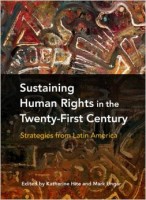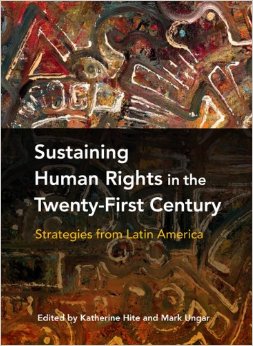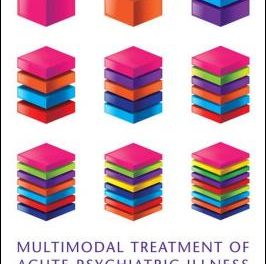 Editors: Katherine Hite and Mark Ungar:
Editors: Katherine Hite and Mark Ungar:
Publisher:Johns Hopkins University Press, 409 pages
Book Review by: Paiso Jamakar
Twelve thinkers on human rights in general and the Latin American past and present on this issue have contributed their observations and views to this volume, which gives it diversity and makes this collection a unique one. These ideas do not belong to a single person.
The editors, Katherine Hite, who previously wrote a book on Latin American politics, and Mark Ungar, who wrote on policing democracy, are professors of political science.
They have organized the various essays in this book around three main themes, designated as Parts I, II, and III in this book:
• The Human Rights Idea
• Institutional and Legal Frameworks and the Question of Accountability
• Citizens” Movements and the Conceptions of Citizenships
The book recounts the brutally repressive actions of dictators in that part of the world. It also relates to the reader the struggle for political, cultural, labor and environmental rights
that continues until today.
The human rights experts of the western hemisphere who have contributed articles to Sustaining Human Rights in the Twenty-First Century write about: taking new approaches to promote and enforce human rights; the transnational efforts underway; the legal and institutional frameworks on human rights that exist currently; and what bodies of citizens are doing to ensure that their rights are not violated by any individual or political group.
One of the important portions of this book is chapter 3, Participation, Democracy and Human Rights: An Approach Based in the Dilemmas Facing Latin America, by Jose Thompson. In it, while the author writes “representative democracy has completely taken over Latin America, with the obvious and persistent exception of Cuba,” he points out several examples wherein the collective will of the people was violated:
• The attempted self-coup of President George Serrano of Guatemala in 1993
• The dissolution of Congress by President Alberto Fujimori of Peru in 1992
• The ousting of President Manuel Zelaya of Honduras in 2009
These and other similar events show that “democracy is not as sound it may have looked on the surface.
This is an excellent book on human rights as it pertains to the situation in Latin America. That part of the world bears watching closely.
Katherine Hite is a professor of political science and the Frederick Ferris Thompson Chair at Vassar College. She is the author of Politics and the Art of Commemoration: Memorials to the Struggle in Latin America and Spain (Routledge Press, 2011).
Mark Ungar is a professor of political science and criminal justice at Brooklyn College and the City University of New York Graduate Center. He is the author of Policing Democracy: Overcoming Obstacles to Citizen Security in Latin America (Woodrow Wilson Center Press, 2011).







